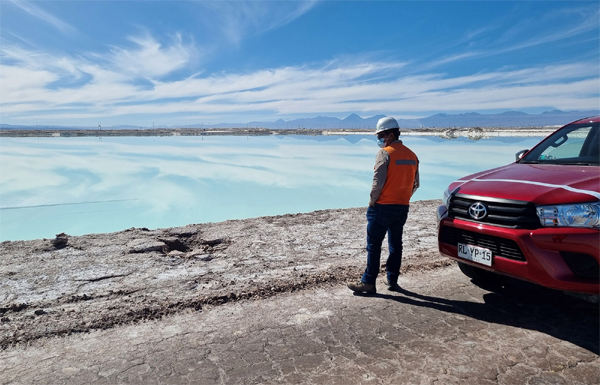- Government will require new projects to use direct extraction
- New policy to give state a bigger role in lithium development

James Attwood, Bloomberg News
SANTIAGO
EnergiesNet.com 03 27 2023
Chile’s government plans to require all new lithium projects to tap a production technique that’s barely used commercially anywhere in a bid to reduce water losses.
The requirement — mentioned by Mining Minister Marcela Hernando in a presentation Wednesday — may constrain future production in a country with the world’s biggest reserves of the key ingredient in electric-vehicle batteries at a time of growing demand.
Chile, the world’s No. 2 lithium supplier, has been losing market share, with output restricted to just two companies — SQM and Albemarle Corp. — from a single salt-flat in the Atacama desert. The two firms currently pump up vast amounts of brine, storing it in giant evaporation ponds for a year or more before processing it and shipping it off to Chinese and Korean battery makers.
As simple as it is profitable, the process uses far less fresh water, chemicals and energy than hard-rock mining. But it means billions of liters of salty water is vaporized in one of the most arid places on Earth, which some say is a threat to wildlife.
As the Chilean government prepares to unveil a policy to develop new deposits, it will require projects to use a more selective or direct process that would mean far less evaporation — and probably less output and profit. Both SQM and Albemarle are investigating such techniques, which are relatively untested commercially.
“For us, any future development has to done with direct extraction,” Minister Hernando said.
With direct lithium extraction, or DLE, brine can be reinjected back into salt flats, reducing the environmental impact and accelerating production. But it has to be adapted to the particular conditions of each salt flat.
The administration of Chile’s left-leaning President Gabriel Boric is creating a bigger role for the state in lithium. Its new policy will include the creation of a state lithium company, with which private firms would partner to develop projects in unexplored brine deposits.
Last year, contracts awarded to private companies under the previous government were rescinded amid growing resource nationalism and a push to introduce less polluting production techniques.
bloomberg.com 03 22 2023











